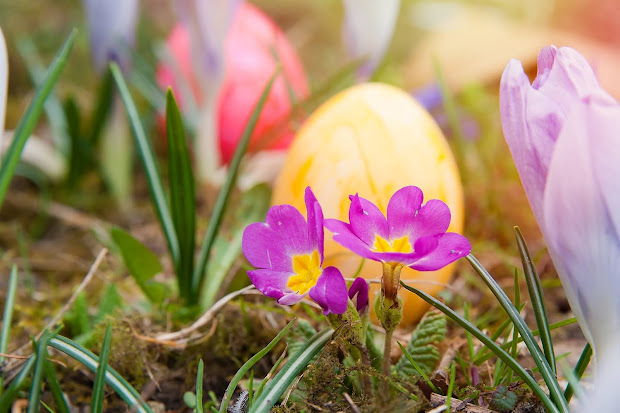Joyeuses Paques
Pâques (Easter ) is one of the most important holidays in France and is celebrated with a traditional family gathering.
Food is, of course, the main focus of the celebration with l’agneau pascal (roast lamb) taking centre stage.
If you are walking around a French supermarket at Easter time, you might wonder why there are les cloches de Pâques (chocolate bells) alongside the more familiar eggs.
Traditionally, church bells ring every day of the year to invite faithful to attend the Mass. The only exception is in the run up to Easter, when they do not ring between Good Friday and Easter Sunday to commemorate the death of Christ and his resurrection. Myth has it that during this time, the bells fly to Rome to be blessed by the Pope.
The bells return the evening before Easter Sunday and randomly drop treats for children. On Sunday morning someone will shout “ les cloches sont passées” (the bells have gone by) and the children run outside on the hunt for chocolate treats.
Shops offer a wide range of chocolate shapes: eggs, bells, bunnies, hens (usually filled with mini eggs) as well as la friture (chocolate fishes).


In the past, the eggs would have been real eggs. Once they had been discovered by children on Easter Sunday, they would have boiled and dyed using onion juice, radish juice or ivy in readiness for Easter Monday. The brightly coloured eggs were often also ornately decorated.

Easter Monday is spent “rouler les oeufs” (rolling the eggs). Although generally considered a children's game, egg rolling actually has a religious meaning: the rolling of the eggs down the hill symbolizes the rolling away of the stones on Christ's tomb at his resurrection.





Comments
Post a Comment